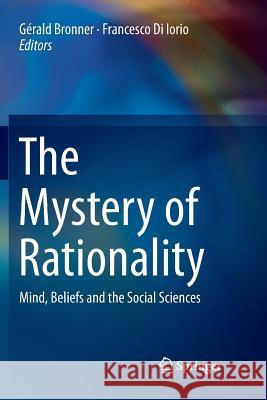The Mystery of Rationality: Mind, Beliefs and the Social Sciences » książka
topmenu
The Mystery of Rationality: Mind, Beliefs and the Social Sciences
ISBN-13: 9783030067762 / Angielski / Miękka / 2019 / 259 str.
Kategorie BISAC:
Wydawca:
Springer
Seria wydawnicza:
Język:
Angielski
ISBN-13:
9783030067762
Rok wydania:
2019
Wydanie:
Softcover Repri
Numer serii:
000463347
Ilość stron:
259
Waga:
0.38 kg
Wymiary:
23.39 x 15.6 x 1.45
Oprawa:
Miękka
Wolumenów:
01
Dodatkowe informacje:
Wydanie ilustrowane











